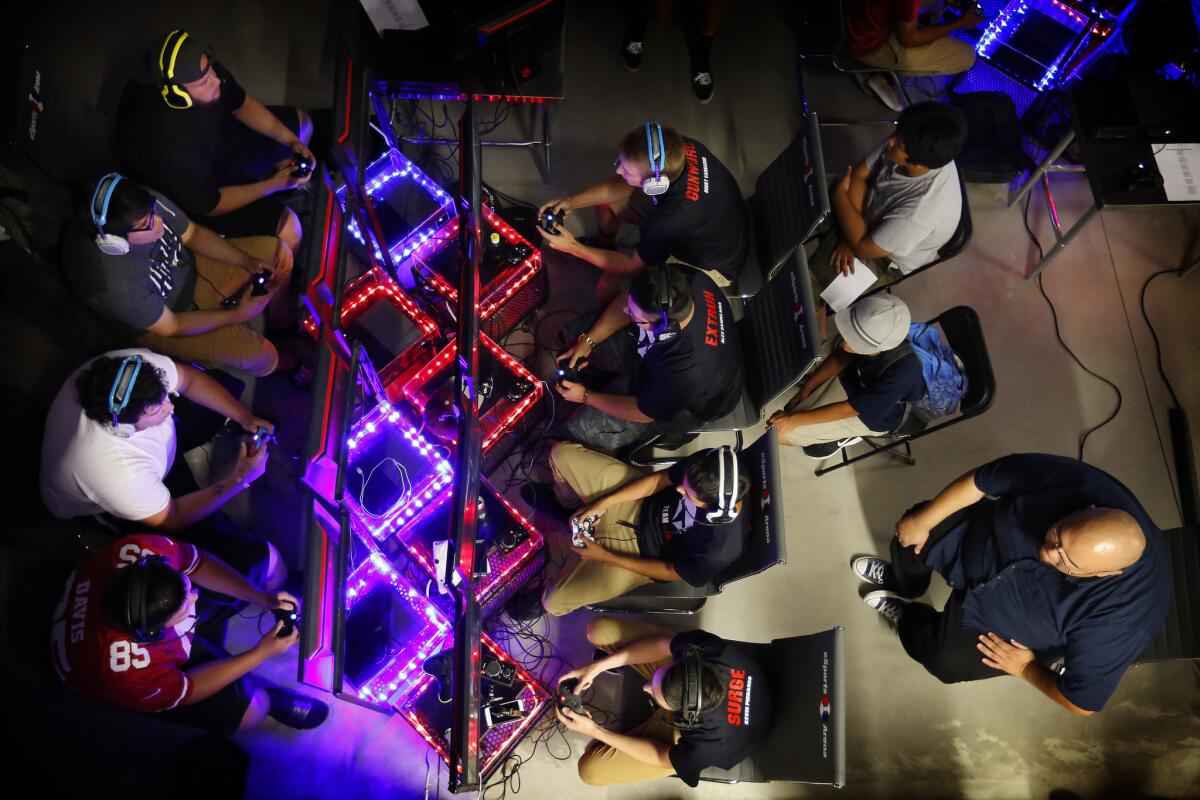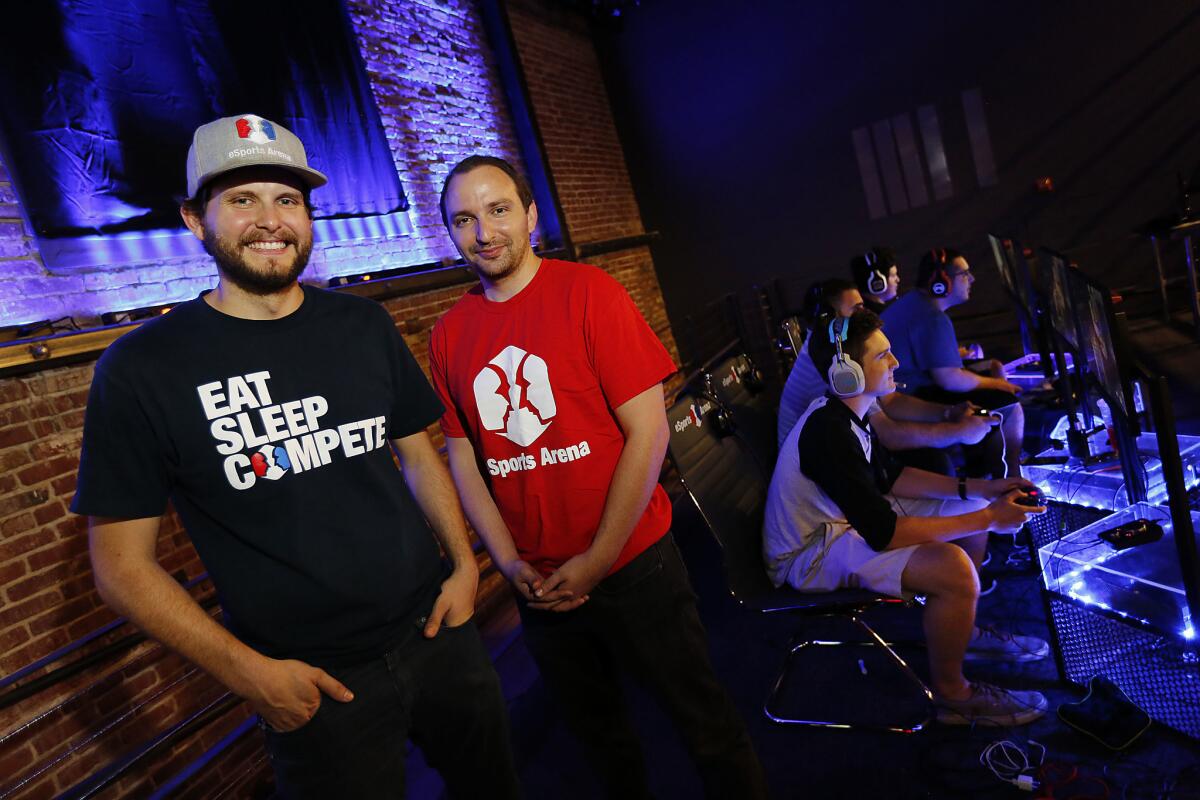With Chinese cash, Santa Ana’s ESports Arena plans to bring a venue to Oakland

- Share via
A multimillion-dollar investment from an alliance of five Chinese sports and video game companies will bring upgrades to the nation’s first large-scale e-sports venue in Santa Ana and finance a second location on the Oakland waterfront.
The deal, announced Thursday, marks the beginning of Allied ESports’ plan to run a worldwide video gaming league through a network of arenas it helps fund.
The company now has minority ownership in ESports Arena, which founded the Santa Ana venue and has ambitions to go national. Next week, Allied plans to announce a similar partnership in Europe. It already operates a nearly year-old, theater-style gaming arena in downtown Beijing.
“We want to be doing events and creating exciting e-sports tournaments and generating captivating content on a consistent basis,” said Allied Senior Vice President Jud Hannigan, who’s been working with Chinese sports companies for a decade.

ESports Arena opened a year ago, hoping to serve as a flexible hub for Southern California video game fans. They come to watch tournaments on stage or on a projector screen. Or they can play games on consoles and computers and relax with liked-minded peers. Like Internet cafes abroad, the 15,000-square-foot arena increasingly may become a way for professional teams to scout up-and-comers.
Chief Executive Paul Ward said he’s “extremely happy” with how it’s been going. One event drew upwards of 2,000 people, he said. Weekly tournaments can attract a couple of hundred players. Streams of in-house gatherings, like a tournament for “Overwatch,” generated millions of viewers. The arena has hosted launch parties for games such as “Blade & Soul.”
When Allied came calling this spring and made a financing offer two months ago, Ward saw an opportunity to accelerate expansion. The 16,000-square-foot Oakland facility, near Jack London Square, is scheduled to open at the end of 2016.
ALSO: Venues are catering to e-sports fans with beanbag chairs, energy drinks and food on sticks »
Ward also plans over the next few months to put in a new studio and bring in higher-quality filming equipment in Santa Ana. He and business partner Tyler Endres had previously raised funding from friends and family and a federal loan.
They intend to breed a friendly rivalry between Northern California and Southern California, and then through Allied, extend regional bickering across the world. Competitive video game teams aren’t confined to location-based fandoms as is common in professional leagues for baseball or soccer. Hannigan and Ward said Allied’s venues slowly could change the dynamic.
They declined to specify how the planned global competition would operate, but Ward said they want to provide a path “from walking in our doors toward becoming one of the best players in the world.”
They have formidable competition in the young and chaotic e-sports industry, which could reap billions of dollars in global annual revenue within a few years. Leagues, sponsors and video content are part of the plans for gaming giants such as Activision Blizzard Inc. and even Chinese e-commerce behemoth Alibaba Group Holding Ltd.
Hannigan said he was steered to ESports Arena through World Poker Tour, an Irvine company acquired by Ourgame International Holdings Ltd. for $35 million last year.
The online game developer is Allied’s largest shareholder, and, like other investors, could benefit from marketing their games inside arenas. Other Allied partners include Wangyu Wangka, which operates 550 Internet cafes across China; video game developers KongZhong and Ourpalm; and sports marketing and hospitality company IRena. They announced a goal in March to have more than 10 arenas in their fold by the end of 2020.
Twitter: @peard33







